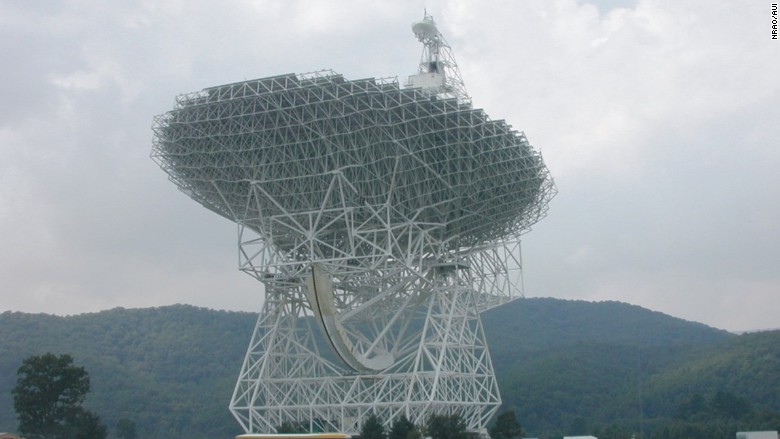
A Roomba for your lawn? Sounds like a good idea. Unless you're an astronomer.
A robotic lawnmower in development by iRobot (IRBT), the company that brought us the Roomba, has riled up a group of astronomers. They say the robot mowers will mess up their radio telescopes.
Confused? Let us summon our inner Carl Sagan ....
Across the wide expanse of our universe, there are billions and billions of star-forming regions. These stellar nurseries would be difficult to see, except for the fact that they radiate a chemical called methanol, which astronomers can tune their antennas to detect.
By searching for methanol across space, astronomers can chart star systems, precisely measure distances to star-forming regions, and discover how galaxies evolved.
The frequency that methanol radiates at is 6.66852 GHz.
The frequency that iRobot lawnmowers use: 6.65 GHz to 6.6752 GHz.
Houston, we have a problem.
The National Radio Astronomy Observatory filed a complaint with the FCC, urging the commission not to grant iRobot a waiver that would allow the lawnmowers to operate in that spectrum band. The NRAO operates 13 radio telescopes (basically giant antenna systems) across the country.
To prevent the robotic lawnmowers from interfering with their antennas, the NRAO says the lawnmowers should not be allowed to operate within 89 kilometers (55 miles) of the telescopes. That would create an area of nearly 10,000 square miles surrounding the telescopes in which iRobot's lawnmowers would be forbidden from operating.
That radius is "overstated," iRobot says.
Related: 5 robots you can buy right now
The big-to-do is about the communication between the robots and a kind of invisible fence owners will have to set up to keep the robotic lawnmowers from straying from their lawns. The fence is created by tiny field beacons that instruct the robotic lawnmower where to go.
In its response to the NRAO's complaint, iRobot said there is essentially no chance that those beacons will disrupt astronomers' antennas.
"As a realistic matter, iRobot's proposed operations will have an infinitesimal likelihood of impacting any radio astronomy measurements in the band," the company said.
In iRobot's estimation, 10 of the 13 NRAO antenna systems are in areas so remote (deserts and forests) that there wouldn't be robot lawnmowers anywhere close to them anyway. Of the three other antenna systems, two are surrounded by foliage and livestock, which would block the robotic lawnmowers' signal.
The company said the only radio telescope near residences is in North Liberty, Iowa. And even there, a heavy forest surrounding the telescope would prevent the beacons from interfering with the methanol band.
To be extra cautious, iRobot said it will market its robotic lawnmowers for consumer use only, and iRobot has offered to place a notice in the user manual and on the robot that states: "Consumer use only; use must be limited to residential areas."
"IRobot respects the work of the radio astronomy community and closely considered the impact of its system on all incumbents and users, including radio astronomy," the company said in its response.
Thus far, Neil deGrasse Tyson has remained mum on the issue.

